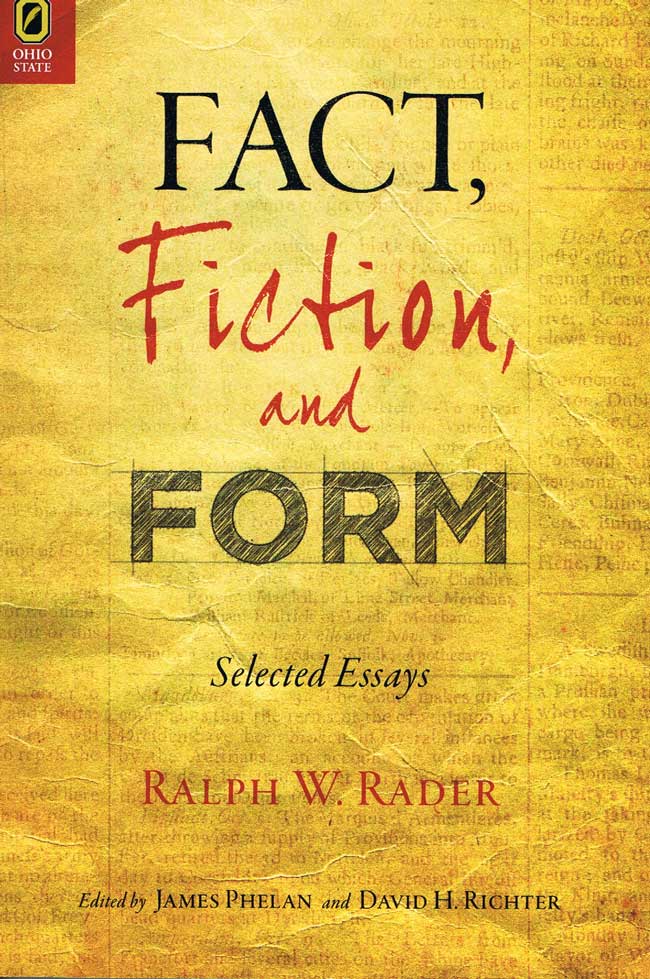Fact, Fiction, and FormSelected EssaysRalph W. Rader
Theory and Interpretation of Narrative |
 11/3/2011 Literary Criticism/General 369 pp. 6x9  $41.95 paper 978-0-8142-5180-5 Add paper to shopping cart $89.95 cloth 978-0-8142-1168-7 Add cloth to shopping cart Shopping Cart Instructions Review/Change Shopping Cart & Check-out | |||
| Table of Contents |
“Ralph W. Rader’s essays are a powerful and coherent expression of an important theory of literature, one still widely accepted. Gathering his work within the covers of a single book, with an authoritative and explanatory introduction by Phelan and Richter, will be of great value in calling renewed attention to Rader’s work. The essays chosen by the editors bring to the fore first-rate and original commentary on many well-known works in British and Irish literature. I recommend this book enthusiastically to students as a powerfully argued presentation of a major theory of literature. It is important for serious students and teachers of literature to know how plausible and persuasive this theory is when it is presented in Rader’s brilliant and extended expression of it.” —J. Hillis Miller, UCI Distinguished Research Professor, University of California, Irvine Ralph W. Rader, along with Sheldon Sacks and Wayne Booth, was one of the three leading figures of the second generation of neo-Aristotelian critics. During his long career in the English Department at the University of California, Berkeley, Rader published scores of essays. Fact, Fiction, and Form: Selected Essays, edited by James Phelan and David H. Richter, collects the most important of these essays, all of them written between the early 1970s and the late 1990s. These critical inquiries, which engage with a remarkable range of literary texts—Moll Flanders, Pamela, Tristram Shandy, “Tintern Abbey,” “My Last Duchess,” Barchester Towers, Lord Jim, Ulysses, and more—are a rich resource for anyone interested in criticism’s ongoing conversations about the following major issues: the concept of form, the genres of the lyric and the novel, the literary dimensions of literary history, the distinction between fiction and nonfiction, the evaluation of literary quality, and the testing of theories and of interpretations. Moreover, the essays collectively develop a distinctive, coherent, and compelling vision of literary form, purpose, and value. Rader’s vision is distinctive and coherent because it is based not on an underlying theory of language, power, history, or culture but rather on the idea that form is the means by which humans respond to fundamental aspects and conditions of their existence in the world. His vision is compelling because it includes a rigorous set of standards for adequate interpretation against which he invites his audience to measure his own readings. James Phelan is Distinguished University Professor of English at The Ohio State University and
David H. Richter is Professor of English at Queens College and the Graduate Center of the City University of New York. | |||

